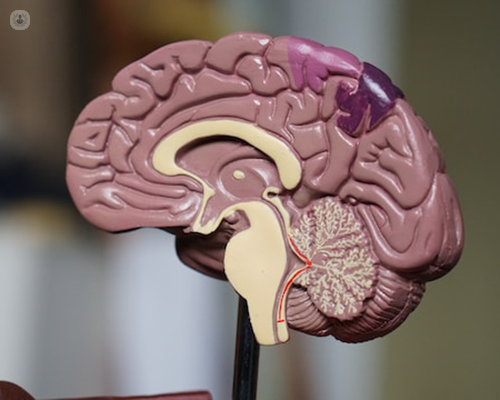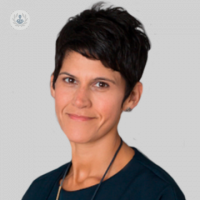Mild traumatic brain injuries: A modern perspective on treatment
Written by:In this informative article, highly respected chartered clinical psychologist and registered clinical neuropsychologist Dr Priyanka Pradhan sheds light on how the treatment of mild traumatic brain injuries has evolved over time.

What types of injuries can lead to mild traumatic brain injuries?
Two main causes of traumatic brain injury are direct forces applied to the head ('impact' injury) and acceleration/deceleration of the brain in the skull. The latter, often experienced in road traffic collisions, can lead to diffuse axonal injury (DAI), affecting white matter and causing cumulative, rather than immediate, functional impairment. Misinterpreting these evolving symptoms as psychological has contributed to the strain on health and social care services.
How are brain imaging techniques and neuropsychological assessments used in this context?
Standard neuroimaging, such as CT scans and standard MRI, lacks sensitivity to identify microscopic damage, particularly DAI. While advanced techniques like gradient-echo and susceptibility weighted imaging can reveal micro-bleeds, they are not routinely available. Diffusion-tensor imaging (DTI) is a sensitive marker for white matter injury but remains largely a research tool.
Neuropsychological assessments play a crucial role in identifying mild traumatic brain injuries (mTBI). However, relying solely on tests has limitations, as many individuals perform within normal limits despite experiencing cognitive changes. Executive dysfunction, recognised through neurobehavioral changes, may not be reflected in standard neuropsychological tests.
How were mild traumatic brain injuries treated in the past?
In the past, mTBIs were not commonly associated with long-lasting physical or cognitive effects. The prevailing belief was that symptoms should improve within three months, leading to complete recovery within six months, allowing individuals to resume pre-injury activities. Failure to follow this recovery trajectory often resulted in the dismissal of ongoing symptoms as 'functional' or 'psychological', leading to inadequate understanding and treatment. Mental health services, when involved, faced challenges in comprehending and addressing issues associated with mTBI.
Confusion between mTBI and concussion persisted for years, with researchers recommending abandoning the term 'concussion' due to its lack of clear definition. Instead, experts proposed classifying traumatic brain injuries' severity and precisely diagnosing post-traumatic symptoms.
How are mild traumatic brain injuries treated now?
While our understanding of the impact of mTBIs on physical, cognitive, and emotional aspects has evolved, historical dichotomous categorisations of symptoms as 'organic' or 'psychological' have hindered a comprehensive neuropsychological approach. Limited services for mTBI in the UK, coupled with variable understanding among healthcare professionals, has led to disparities in referral and treatment. Neglecting the needs of the 'walking wounded' has resulted in severe consequences, including family breakdown, job loss, substance misuse, and involvement in criminal behaviour.
Despite growing evidence linking mTBI symptoms to pathological processes in the brain, a general acceptance of this is lacking among clinicians. Challenging long-standing beliefs is a significant hurdle in treating individuals with mTBI appropriately. Changing awareness of mTBI has implications for clinical practice. The term 'mild TBI' may be misleading, given the significant impact on individuals' lives. Clinicians need to challenge their belief systems, allowing proper assessment and understanding of symptoms. This shift has short-term implications for primary care but could alleviate long-term burdens on secondary and tertiary care services.
Acceptance of brain function changes is the first step in mTBI treatment. Psycho-education for individuals, families, and workplaces is crucial. Treatment options vary, with statutory services offering limited provision, while personal injury claims may lead to more comprehensive but still insufficient approaches. The evidence base for talking therapies and medication outweighs alternatives like neuro-feedback, music and art therapy, acupuncture, and hormone replacement therapy. Brain-body-based approaches, such as yoga, tai chi, and qigong, show promise in aiding recovery and combating fatigue.
To schedule a consultation with Dr Pradhan, visit her Top Doctors profile today.


